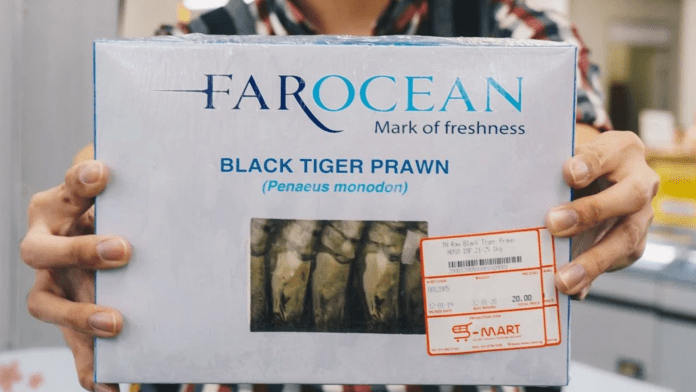Far Ocean, a food processing company, and its director were fined a total of $378,000 for multiple offenses, which included the absence of expiry dates or the presence of incorrect ones on 5,880kg of fish and meat products.
The Singapore Food Agency (SFA) has identified this case as the most comprehensive one it has investigated thus far.
On November 20, Far Ocean Sea Products faced a fine of $223,000, with Jordan Quek Ruiming, aged 36, being directed to pay a fine amounting to $155,000.
If Quek is unable to pay the specified amount, he will be required to serve a 620-day prison sentence.
Quek has been serving as a director of the company since July 1, 2015, and holds directorship positions in several other firms, including Bakers & Co and JSI Investments.
Prior to pronouncing the sentence, District Judge Eugene Teo observed that, during an inspection, food products expired by three years were discovered on the company’s premises and processed for sale.
Stressing that the scale of the offences was “quite unprecedented”, he said, “Food safety ought to be the primary concern for all food suppliers.”
In October, Far Ocean Sea Products and Quek pleaded guilty to 30 charges each, related to the violation of the conditions stipulated in the firm’s licenses, along with an additional charge for unlawfully utilizing a room at its premises for food processing.
The company also confessed to an additional charge of impeding officers in their investigations by tampering with a sealed room.
Quek and the company were confronted with an additional 97 charges, all of which were taken into account during the sentencing process.
Characterized as a “major market participant” by the prosecution, Far Ocean provides and markets fish and meat products to commercial customers.
Their clientele comprises hotels, supermarkets, food and beverage establishments, airlines, and non-commercial customers both in Singapore and abroad.
During previous proceedings, Deputy Public Prosecutors Niranjan Ranjakunalan, Kayal Pillay, and Gladys Lim stated that Far Ocean held two licenses permitting the operation of a processing establishment in Fishery Port Road for the production of fish and meat products intended for consumption.
As a stipulation, the company was required to guarantee that every package of meat or fish product was distinctly marked and labeled with its expiration date.
On July 3, 2019, officers from the Singapore Food Agency (SFA) conducted an inspection of Far Ocean’s facilities in response to a complaint against the company. During the inspection, a significant quantity of products lacking proper marking and labeling of expiry dates was discovered.
Inquiries uncovered that Far Ocean failed to maintain an accurate inventory of its meat and fish products. Additionally, the company lacked proper records of invoices and production dates.
Consequently, a substantial quantity of expired meat and fish products was present on the premises, including items whose expiration had exceeded three years. These products were stored alongside those that had not yet reached their expiration dates.
During the second day of the inspection on July 4, 2019, officers from the Singapore Food Agency (SFA) sought permission to access a room designated exclusively for use as a dry store, which was found to be locked.
An employee mentioned that the room was not in use, and the keys were not present on the premises.
Through a gap in the door, the officers noted the presence of meat-slicing machines, along with meat pieces and white substances resembling meat fats in a drainage area. These observations suggested that the room was utilized for meat processing.
To facilitate their inspection once the keys were surrendered, the officers sealed all three doors leading to the room.
The following day, upon obtaining the keys, the officers discovered that the room had been tidied up, and the machines were covered with plastic wraps.
Inquiries disclosed that the staff accessed the room through an opening in a false ceiling.
The prosecution stated in October that the company had a longstanding practice of instructing staff to clean the room whenever an inspection occurred.





